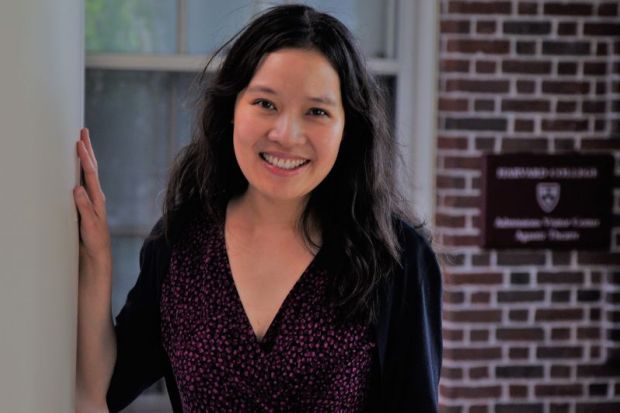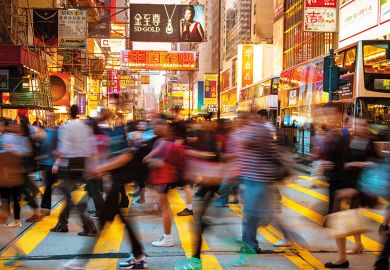Academics thinking about taking a position in Hong Kong might start to reconsider, according to a scholar who was denied a visa to return to her post at a leading university there and subsequently lost her employment.
In what is thought to be the first high-profile case of a researcher already employed in Hong Kong being denied a visa to return, Rowena He, a Canadian national and historian specialising in the 1989 Tiananmen Square protests, was dismissed by the Chinese University of Hong Kong following the decision by the territory’s Immigration Department.
“I think, from now on, people will start to ask, ‘If I study this topic, if I teach this, am I going to lose my visa and then my job?’” Dr He told Times Higher Education.
For many academics who cannot enter China for research, Hong Kong has proven a valuable middle ground – a place with shared language and history where they can travel unimpeded and study the country from a close distance.
But since the 2020 introduction of the National Security Law, there has been a narrowing of freedoms on the island, particularly for scholars looking into sensitive topics.
The decision on Dr He’s visa came after 15 months of waiting and no word from immigration officials, she said. She had been due to return to Hong Kong this summer, having been on a fellowship at the National Humanities Center, a North Carolina-based non-profit organisation.
Despite having previously come under scrutiny by immigration officials when she left for the US more than a year ago, she was “shocked” by the reaction from the university, which she said summarily sacked her.
“I thought there would at least be a sentence saying ‘thank you for your service’, or someone would try to talk to me,” she said. “I think it’s very difficult to face what’s happening to me both professionally and personally. You feel you do a good job, and you’re punished for doing it.”
CUHK told THE that visa decisions were a matter for the Immigration Department. “The employment of non-permanent residents is conditional upon the possession of a valid visa. This is consistent with jurisdictions around the world,” a spokesperson said.
Currently at a temporary research position at the University of Austin, Dr He said she had been in a state of “limbo” for months, relocating 22 times between short-term rentals.
“I studied political exiles for over two decades and used to think I understood them very well. But now, when it comes to my turn, and you have all your winter and summer clothes in one suitcase…I felt defeated,” she said.
Despite her ordeal, Dr He urged historians to continue their work.
“I hope colleagues will not just stop doing what they consider the right thing to do,” she said. “I do hope there will be a bright side of this coin, that they realise even more the importance of carrying on our mission to teach and write about historical truths.”
Register to continue
Why register?
- Registration is free and only takes a moment
- Once registered, you can read 3 articles a month
- Sign up for our newsletter
Subscribe
Or subscribe for unlimited access to:
- Unlimited access to news, views, insights & reviews
- Digital editions
- Digital access to THE’s university and college rankings analysis
Already registered or a current subscriber?










